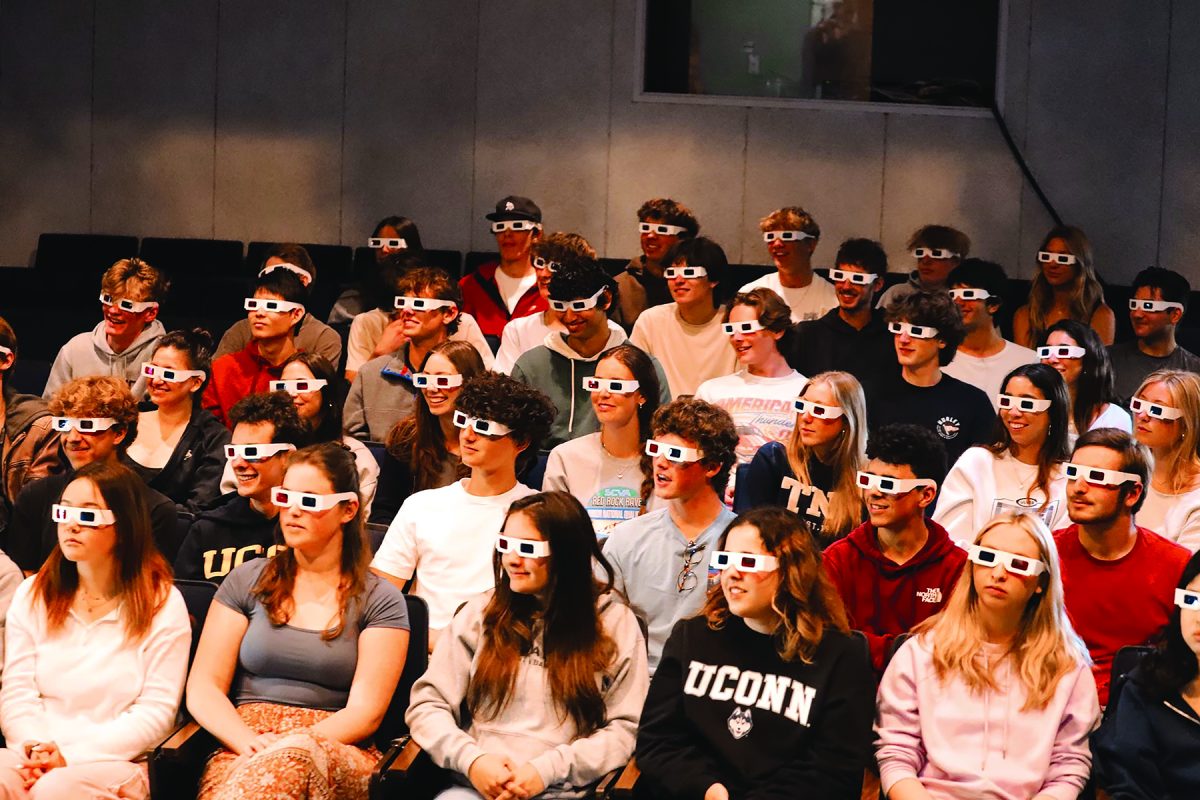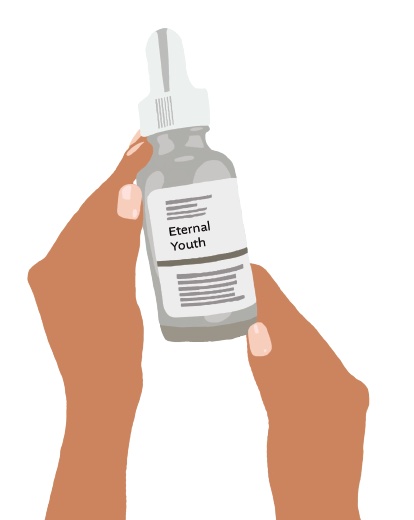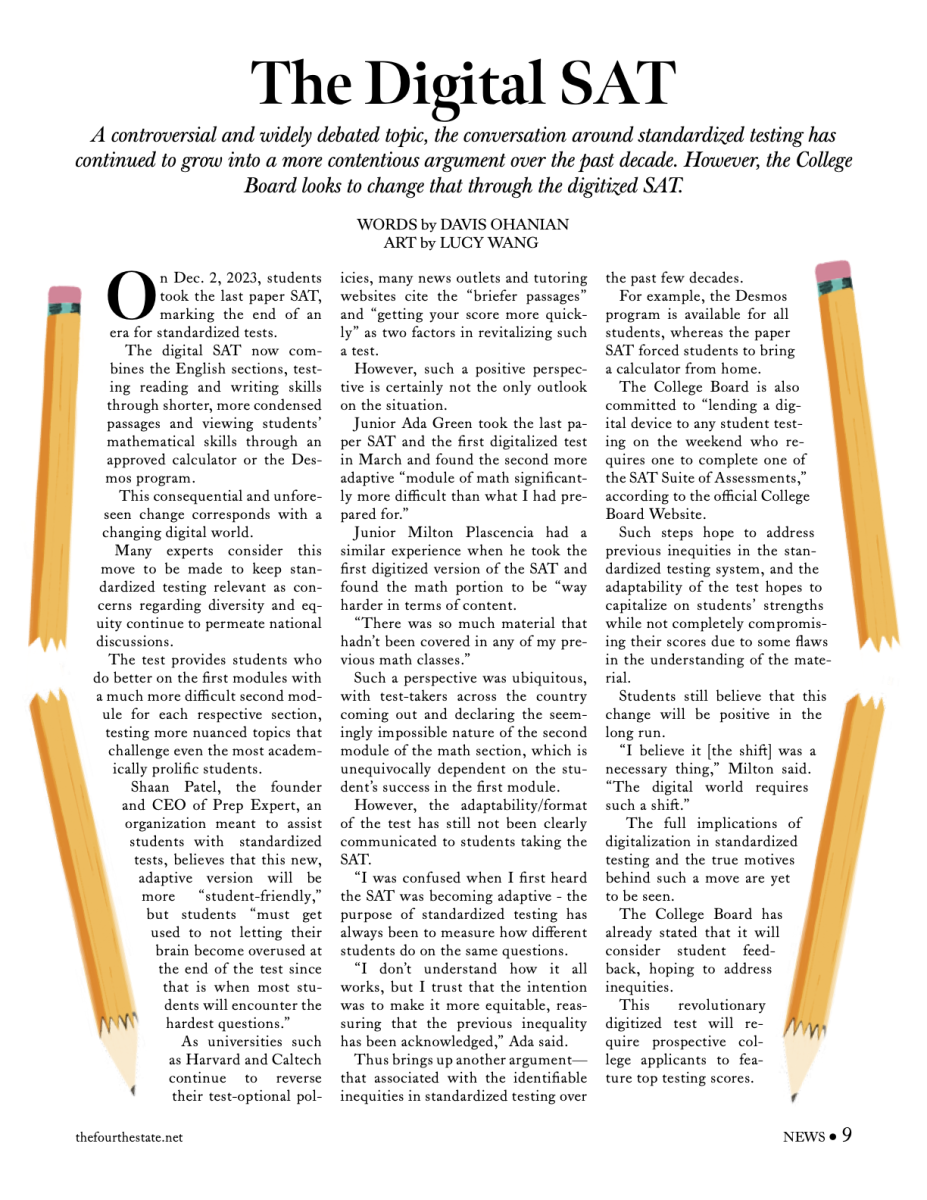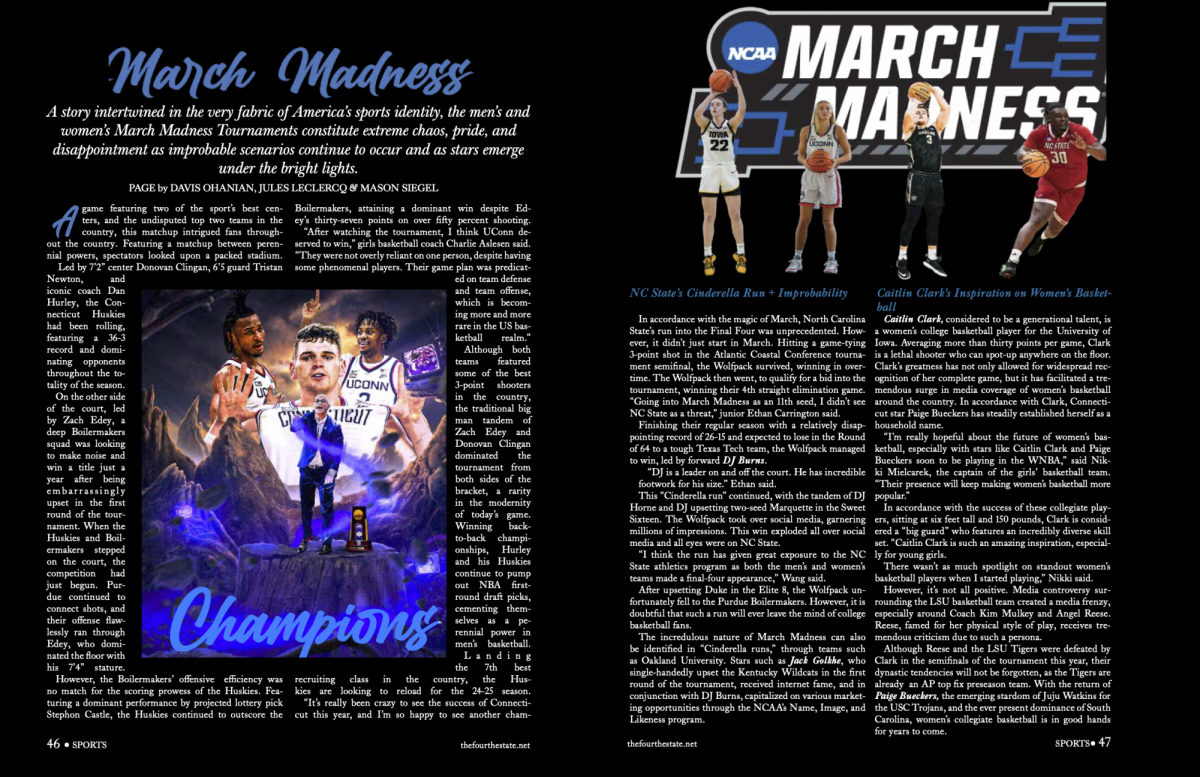You have been sitting in the gym for over two hours working on your English final.
You have 15 minutes to finish your essay. Your hand is moving faster across the pages than you ever thought it could.
“Time’s Up!”
That’s it. You have to stop and turn in your essay even if it’s sloppy and would look much better if only you had more time.
Running out of time is familiar to most students—especially to those without the benefit of having extra time.
However, for some students, there’s more time.
Students with documented learning differences are given accommodations for tests and other assignments in an effort to allow them adequate time to compensate for his or her learning challenges.
These challenges can include different types of dyslexia, attention deficit hyperactivity disorder (ADHD), and obsessive-compulsive disorder (OCD).
 To receive testing accommodations in school, legal verification of the disability is required, which can be issued after a series of educational evaluations from a doctor or education specialist.
To receive testing accommodations in school, legal verification of the disability is required, which can be issued after a series of educational evaluations from a doctor or education specialist.
Additionally, for people with various learning differences, a range of accommodations are given.
In regards to extra time, some students get time and a half of the normal amount allotted, some get double and some students can type essays that would normally have to be handwritten.
However, as a student who does not receive testing accommodations, the system can, at times, seem unfair.
It is clear that for some students, testing accommodations are necessary for them to work without their learning differences severely holding them back from what they are capable of.
I believe it is fair that people who truly need accommodations should receive them, but I believe the system has loopholes, and that there are people who take advantage of the resources and work the system.
According to the 2010 report to the U.S. Department of Education, up to one out of every five people in the United States has some form of a learning difference.
That means one in every five students could potentially receive testing accommodations at school if they wanted to go to a doctor and get the correct documents. If that doctor didn’t give them the accommodations they wanted, there’s always another doctor.
“If you truly have a problem, then yes, you should get extra time; but if there isn’t anything really wrong and you get extra time, that is sort of abusing the system,” said one Laguna student.
Additionally, for certain students, medications such as Ritalin, Concerta, Dexedrine, or Adderall are prescribed to help them with attention deficit disorders.
If students are getting extra time to cope with their learning differences but also taking medication for the same reason, shouldn’t one lessen the need for the other?
Furthermore, students can receive extra time on standardized tests, although this is a much more extensive process.
Standardized tests such as the SAT and the ACT are something that consume high schoolers’ thoughts because they are critical to their future. These tests are uniquely complex because each section has strict time requirements.
I think the process of deciding which students receive testing accommodations has become too concerned with helping students to do their best and has lost sight of helping kids who really have problems.
Who is to say that every student wouldn’t perform their best if given more time on a test in school or more time writing their essay on the SAT?
Many people could benefit from taking extra time on tests and many people have complications that they just have to deal with. Whether or not they really need extra time is a different question.
Many students have said that students who get testing accommodations and take tests in a different setting end up receiving more help on the tests than students who take tests in the classroom.
“It is like a crutch—a lot of people use it to get extra help,” said one student who receives testing accommodations.
Testing Accommodations: A Privilege or a Right?
January 13, 2014
0
Donate to The Fourth Estate
$50
$500
Contributed
Our Goal
Your donation will support the student journalists of Laguna Blanca School. Your contribution will allow us to purchase equipment and cover our annual website hosting costs.









































